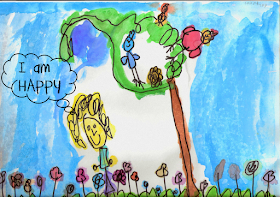 |
Children growing up in the U.S. are coming of age in a highly consumer driven culture, which is highly evident around the holidays. It is important to acknowledge that our children are targeted as consumers and as a result will have an increased expectation for material objects. Children who have most or all of their wants met are very likely to develop a false sense of entitlement with unrealistic expectations on the realities of life.
Since children learn best through observation, it is essential that the adults in their lives take a “less is more” approach to their own life. Time spent together should be based on experiences- such as trips to the library or local pool rather than spent in shopping malls every weekend.
- Volunteer- Making regular contributions to the community at large can be a great way to make an impression with children.
- Keeping a gratitude journal where children and family members record what they were grateful for during the day or past week.
- Sharing thanks before meals or sharing "3 good things that happened today" before bedtime are great ways to incorporate gratitude into your daily life.
Joan Grusec (1992), a developmental psychologist, found that young children who received frequent praise for displays of generosity tended to act slightly less generous on an everyday basis than other children did. Every time they had heard "Good sharing!" or "I'm so proud of you for helping," they became a little less interested in sharing or helping. Actions of generosity changed from something valuable in their own right to something they had to do to get that reaction again from a grown-up. When acknowledging your child's acts of kindness, be sure to emphasize the feeling rather than the deed. "She smiled when you help open the door. She looked like she appreciated that."
- While children younger than seven can certainly benefit from many of the ideas we listed, it is important for parents to realize that egocentrism wins over empathy much of the time prior to 7 years of age.
- Developing gratitude is a lifelong process and should continue year round.
- Young and old alike are best able to develop empathy when their five critical needs are met.
No comments:
Post a Comment